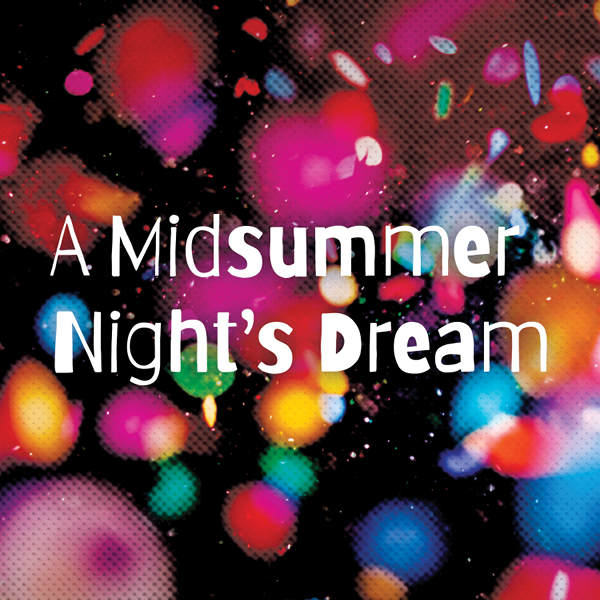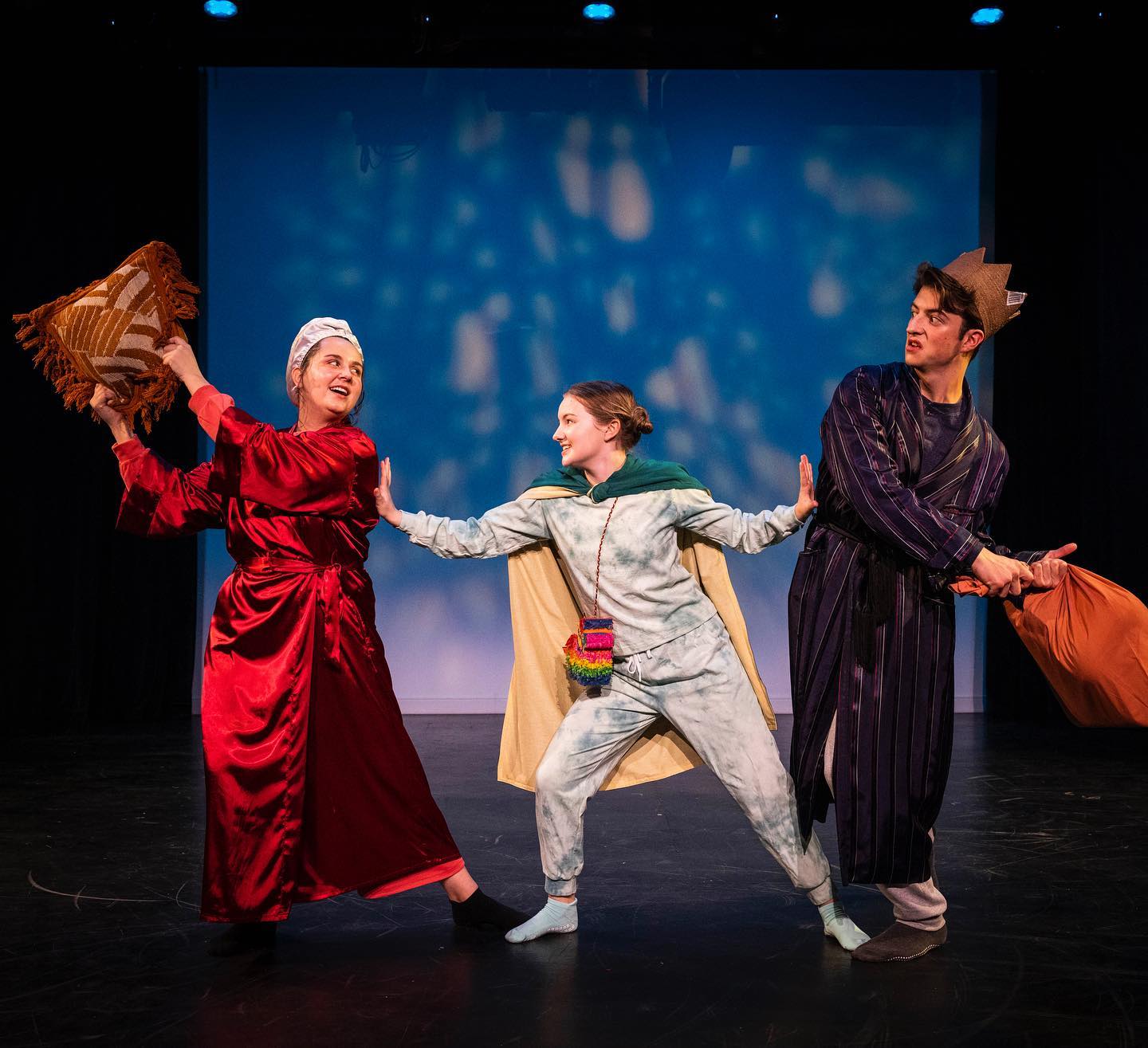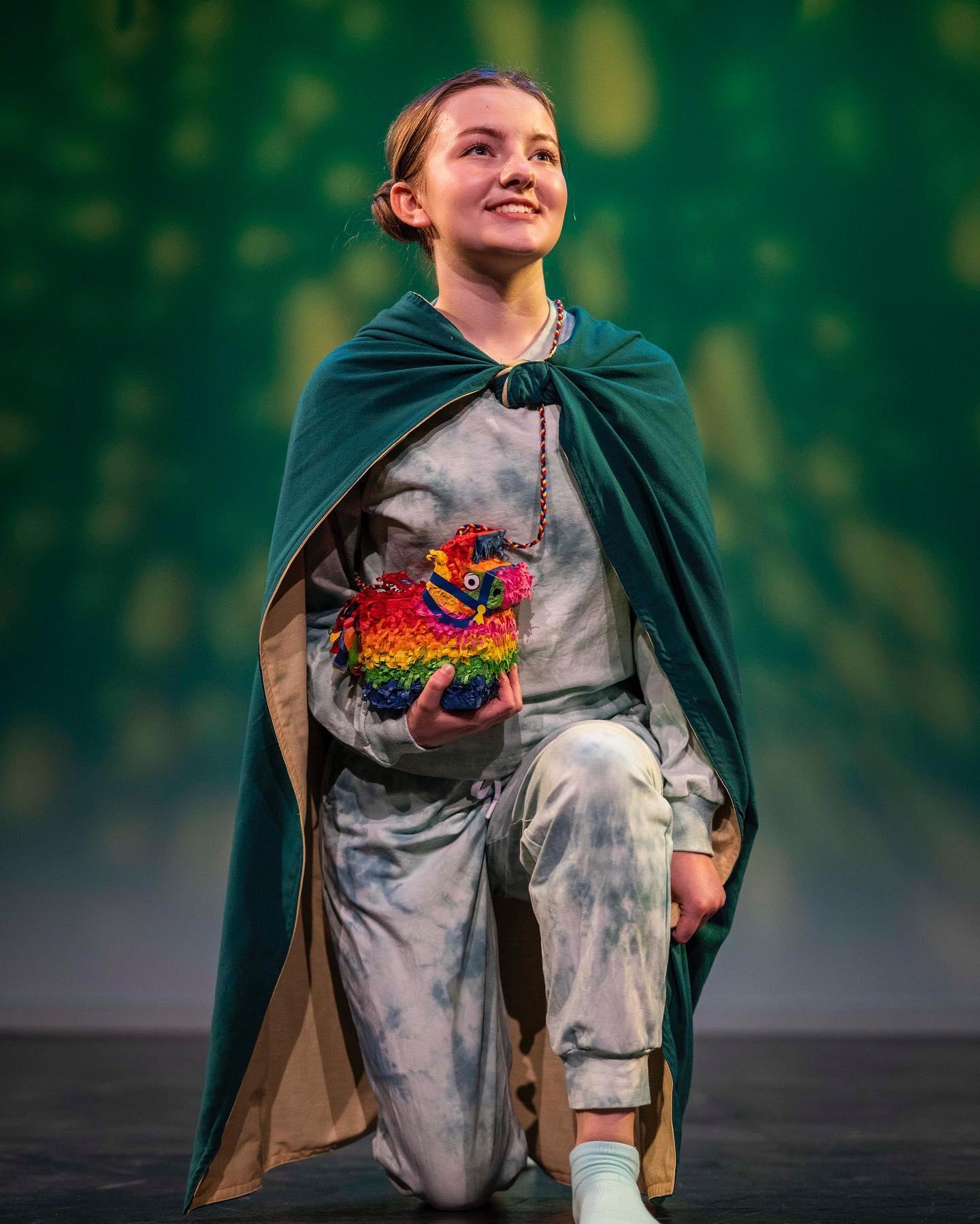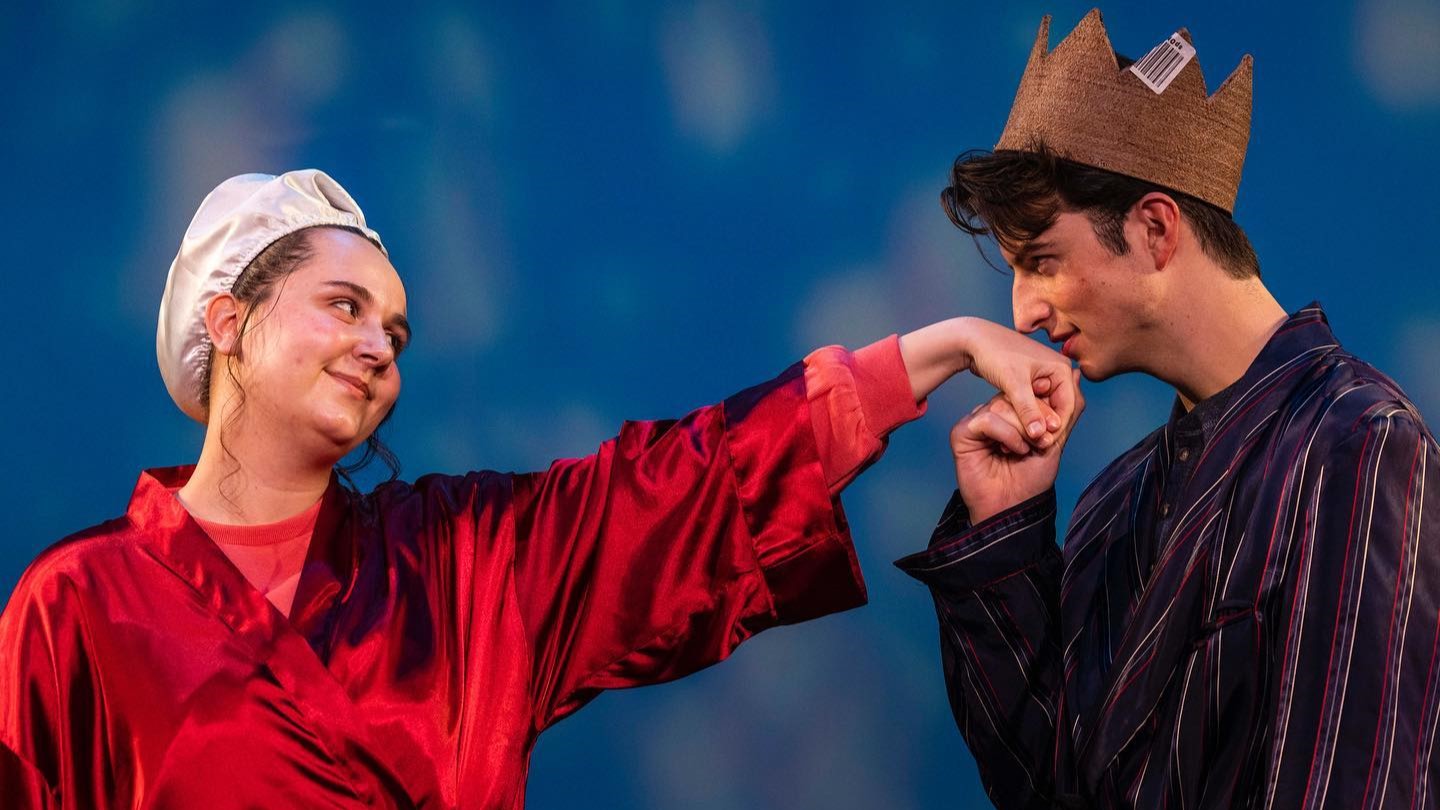PROVO — A Midsummer Night’s Dream might be the most durable script in the theatre. For over 400 years, this play has enchanted audiences with memorable characters and jokes that still get laughs. The BYU Young Company has a new production of A Midsummer Night’s Dream that packs all the charm of Shakespeare‘s classic script into a 60-minute production targeted at children. Yet, I found myself — as a parent, a theatre fan, and as a critic — enjoying the show just as much as my kids did.

Director Kris Wing Peterson has built this production around the concept of a slumber party. The actors are dressed in sleepwear (by costume designer Kenzie Ijams), and the set (designed by Cooper Tribett) consists of a classy quilt backdrop, a tent that looks like a large blanket fort, and some matching blocks. It is a setting that bring a sense of playfulness to the show and encourages children to use their imaginations. But Peterson’s concept is well grounded in the script: most of the play takes place after dark, six of the characters fall asleep on stage (some more than once), and the dialogue is littered with references to sleeping and dreaming. Though I never would have thought of a slumber party setting, it feels so natural to see it in A Midsummer Night’s Dream. Only a clever and skillful director could make such an unusual creative choice that seems so obvious in hindsight.
Peterson does not just make A Midsummer Night’s Dream look like a slumber party, though; she makes the show as fun as one. The staging has unexpected moments that entertained me and my two children. My children were delighted when Puck imitated a rocket in one entrance (after earlier promising to “put a girdle round the earth in forty minutes”), and all three of us roared with laughter when the song “Baby Shark” had an unexpected cameo. I also appreciated the many ways that the children in the audience were invited to participate in the show, which made the show interactive. However, I did wonder why Philostrate (played by Kadyn Ballard) rushed through the prologue to Pyramus and Thisbe. But this odd pacing choice is forgivable because it was near the end of the show, and my 6-year-old daughter had started squirming about two minutes earlier.

Grant Fletcher had the plum role of Bottom, and he took full advantage of it. His character’s overconfidence while rehearsing Pyramus and Thisbe was a great source of humor, and Fletcher’s adoption of donkey-like mannerisms showed that Bottom’s transformation extended beyond his appearance. Cameron Paxman created the most believable character with his performance of Lysander; the character’s impassioned overtures of love towards Helena (played by Lydia Cox) were the sweetest moments in the play. Aunah Johnson was so dignified as both Titania and Hippolyta that I believed that she was a queen, even though Johnson was wearing pajamas. And when Ballard was playing Puck, she seemed to have the most fun on stage, especially when she was manipulating the mortals and causing chaos.
The weakest performance came from Will Blackburn, who had trouble making Oberon (a king) and Theseus (a duke) authoritative in his scenes. But children will not care, and most adults will not notice this minor deficiency. Finally, I was pleasantly surprised by how endearing the “hempen homespuns” rehearsing Pyramus and Thisbe were, even though the abridged script greatly reduced their stage time. Generally, A Midsummer Night’s Dream has a strong cast. All eight cast members each play two or three characters, and all the actors differentiate their performances well. It is a pleasant group to spend an hour with.

The BYU Young Company shows that, four centuries after its debut, A Midsummer Night’s Dream can still entertain audiences. A bare-bones production does nothing to diminish the fun of this play. I hope that readers will make a family night out of A Midsummer Night’s Dream. It is an amply entertaining production for kids — or the kid inside.
[box]The BYU Young Company production of A Midsummer Night’s Dream plays Wednesdays through Fridays at 7 PM and Saturdays at 2 PM and 4 PM through March 25 at the Studio Theatre in the West Campus Building on the campus of Brigham Young University. Tickets are $7-9. For more information, visit byuarts.com.[/box]
